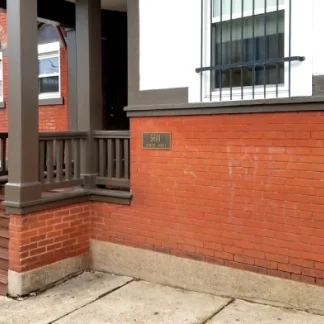UPMC - Magee Women's Hospital
UPMC – Magee Women’s Hospital is a private rehab located in Pittsburgh, Pennsylv...
Accessible Recovery Services - Highland Park (ARS) offers medically assisted treatment for Opioid Addiction. Accessible Recovery Services - Highland Park provides evidence-based treatment plans that include therapy to maximize the chances of a successful recovery.
Contact us for more information: (724) 591-5236

Connect with Accessible Recovery Services - Highland Park by calling their admissions team directly.
(724) 591-5236 Website Get DirectionsThe Substance Abuse and Mental Health Services Administration (SAMHSA) is a branch of the U.S. Department of Health and Human Services. Established in 1992 by congress, SAMHSA's mission is to reduce the impact of substance abuse and mental illness on American's communities.
SAMHSA Listed: Yes
Cognitive behavioral therapy is based on the idea that feelings and behaviors are caused by a person’s thoughts, not on outside stimuli like people, situations and events. People may not be able to change their circumstances, but they can change how they think about them and therefore change how they feel and behave, according to cognitive-behavior therapists. In the treatment for alcohol and drug dependence, the goal of cognitive behavioral therapy is to teach the person to recognize situations in which they are most likely to drink or use drugs, avoid these circumstances if possible, and cope with other problems and behaviors which may lead to their substance abuse.
Group therapy is any therapeutic work that happens in a group (not one-on-one). There are a number of different group therapy modalities, including support groups, experiential therapy, psycho-education, and more. Group therapy involves treatment as well as processing interaction between group members.
In individual therapy, a patient meets one-on-one with a trained psychologist or counselor. Therapy is a pivotal part of effective substance abuse treatment, as it often covers root causes of addiction, including challenges faced by the patient in their social, family, and work/school life.
Group therapy is any therapeutic work that happens in a group (not one-on-one). There are a number of different group therapy modalities, including support groups, experiential therapy, psycho-education, and more. Group therapy involves treatment as well as processing interaction between group members.
In individual therapy, a patient meets one-on-one with a trained psychologist or counselor. Therapy is a pivotal part of effective substance abuse treatment, as it often covers root causes of addiction, including challenges faced by the patient in their social, family, and work/school life.
In individual therapy, a patient meets one-on-one with a trained psychologist or counselor. Therapy is a pivotal part of effective substance abuse treatment, as it often covers root causes of addiction, including challenges faced by the patient in their social, family, and work/school life.
UPMC – Magee Women’s Hospital is a private rehab located in Pittsburgh, Pennsylv...
Spectrum Family Network is a private rehab located in Pittsburgh, Pennsylvania. ...
Western Psychiatric Institute – Addiction Treatment Program is a private rehab l...
LifeCare Hospital – Behavioral Health is a private rehab located in Pittsburgh, ...